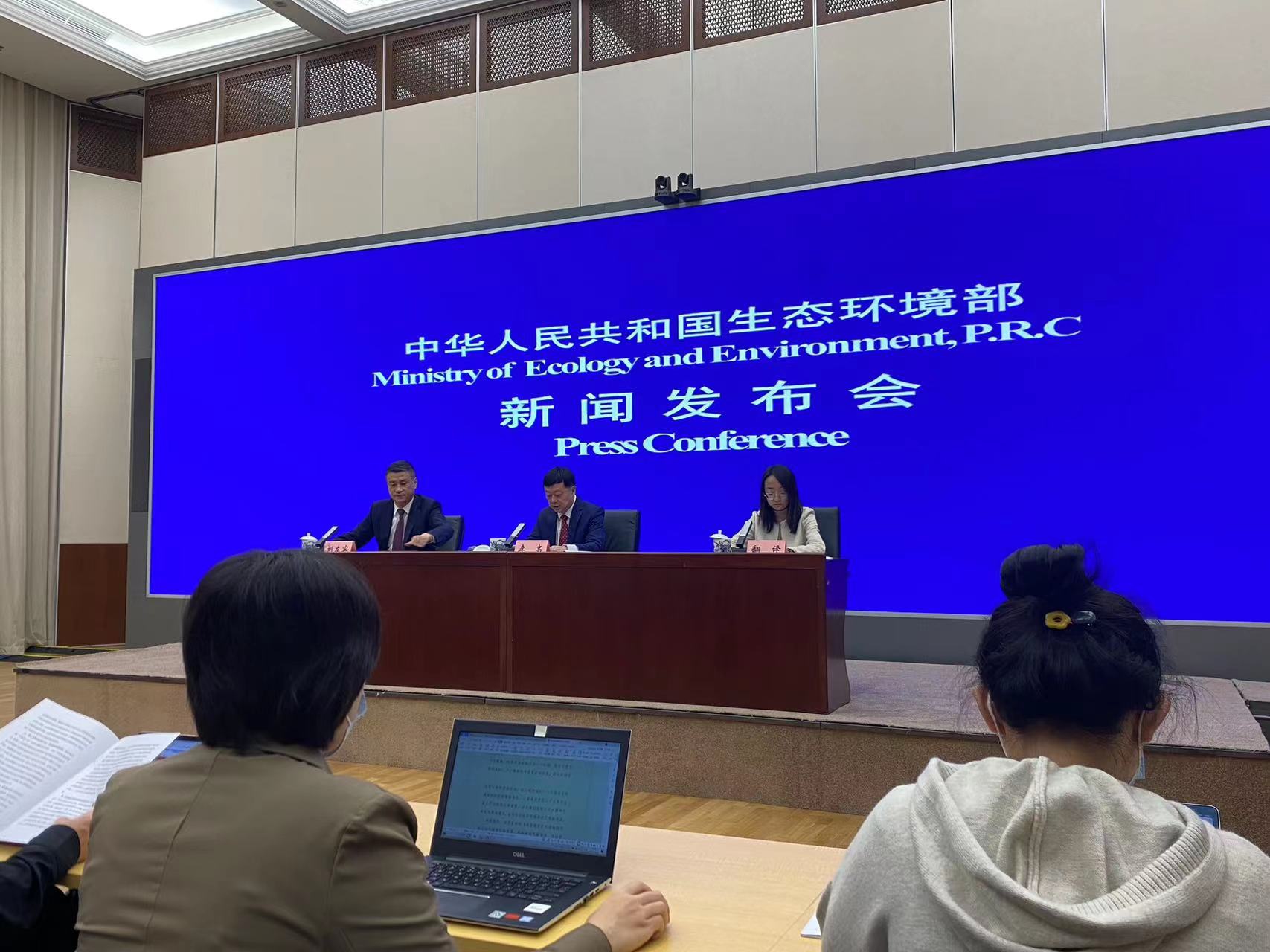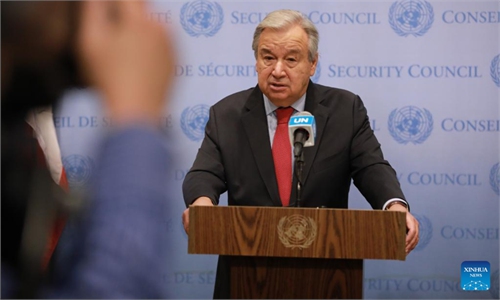China urges COP27 to focus on current goals, respond to developing countries’ demands

The Ministry of Ecology and Environment of China holds a monthly press conference on October 27, 2022 photo: Shan Jie/GT
China has urged the COP27 to effectively respond to the concerns expressed by developing countries and pay special attention to their demands in the global process of tackling climate change, while expressing hope that the event will focus on realizing existing goals, instead of eagerly coming up with new ones."China supports Egypt in hosting a successful COP27. We look forward to working with all parties to build COP27 into a conference in the theme of 'implementation' and the highlights of adaptation and funding, which are of the greatest concern to developing countries," Li Gao, general director of the Department of Climate Change with the Ministry of Ecology and Environment (MEE) of China, said at a Thursday press conference.
The COP27, or the 27th Conference of the Parties of the United Nations Framework Convention on Climate Change (UNFCCC), will take place in Sharm El-Sheikh, Egypt, from November 6 to 18. Some members of the Chinese delegation will depart for Egypt this coming weekend, the Global Times learned from the MEE.
Li urged all parties to fully and accurately implement the goals and principles of the UNFCCC and the Paris Agreement, especially the principle of common but differentiated responsibilities and respective capabilities, adhere to the global temperature control goal of "within 2 C and strive for 1.5 C," and jointly build a fair, and reasonable cooperation.
COP27 should encourage all parties to transform the already proposed nationally determined contribution goals into effective policies, solid actions, and specific projects, rather than rushing to propose new goals, Li said.
"We believe that empty slogans are not ambitions, and real ambitions can only be demonstrated by implementations," he said.
In terms of the topic of adaption, Li said that China supports UN Secretary-General António Guterres' initiative on establishing a global early warning system. Developed countries should increase financial support for adaptation efforts in developing countries, and propose a roadmap for doubling adaptation funds.
In 2009, wealthy countries pledged $100 billion a year to help lower-income nations by 2020 at COP15 in Copenhagen. However, they still have not made good on the pledge.
"This has not only seriously affected and hindered the development of climate action in developing countries, but has also seriously damaged mutual political trust between developed and developing countries," Li said. "We urge developed countries to fulfill their annual funding commitments of $100 billion as soon as possible, instead of just submitting a report during COP27 that makes excuses for the delay in fulfilling commitments."
"Climate change is related to the future of mankind, and only the concerted efforts of all parties can effectively deal with it. We must uphold true multilateralism, reject any unilateral measures and the politicization of climate issues, and oppose any kind of decoupling or de-globalization," Li reaffirmed.
On Thursday, the MEE published the annual report on China's policies and actions in tackling climate change.
According to the report, compared with 2005, CO2 emissions per unit of GDP had dropped 50.8 percent by 2021 in China, and non-fossil fuel energy accounted for 16.6 percent of primary energy in 2021.
The total installed capacity of wind and solar power has reached 635 million kilowatts, coal consumption per unit of GDP has been significantly reduced, and forest coverage and stock volume have achieved growth for 30 consecutive years.
The national carbon emission trading market has been in operation for a year and has seen a carbon emission allowances trade of 194 million tons.
China aims to have CO2 emissions peak before 2030 and achieve carbon neutrality before 2060. To achieve these goals, China has created short- and long-term strategies and has seen achievements.
According to the report, for instance, the Beijing 2022 Olympic Winter Games were the world's first "carbon neutral" Winter Olympics, as all venues met green building standards, and 100 percent of conventional energy in the event used green electricity.




